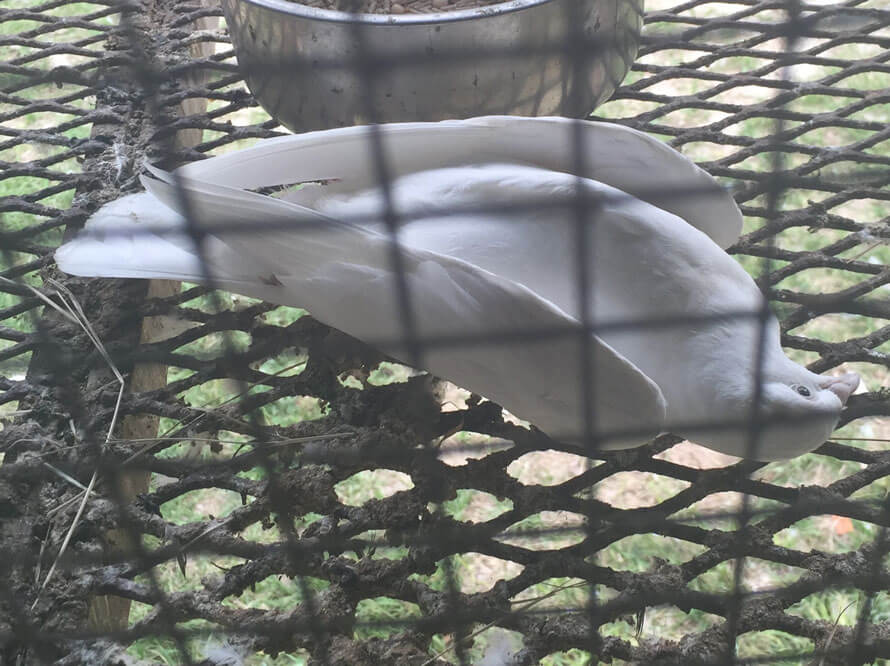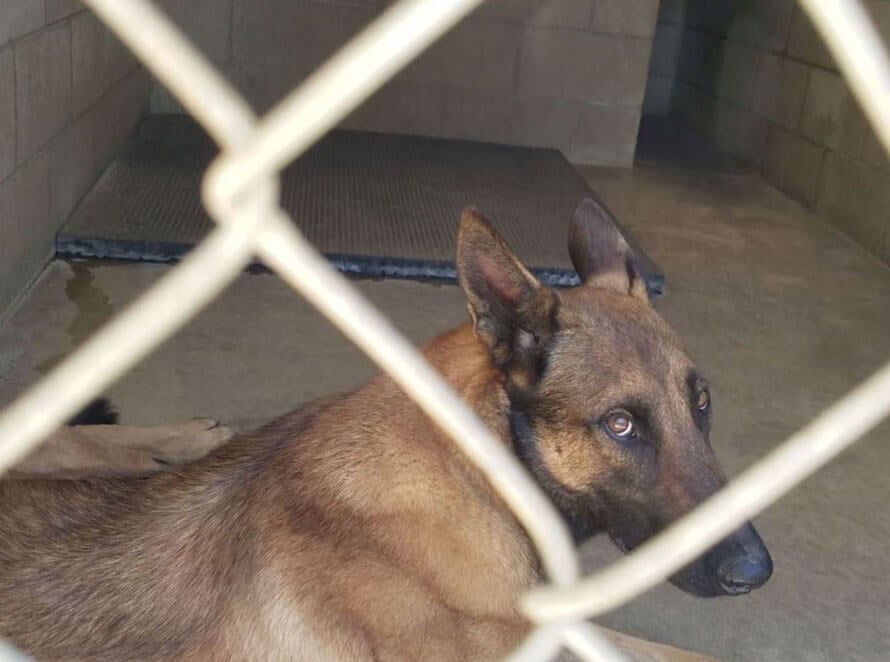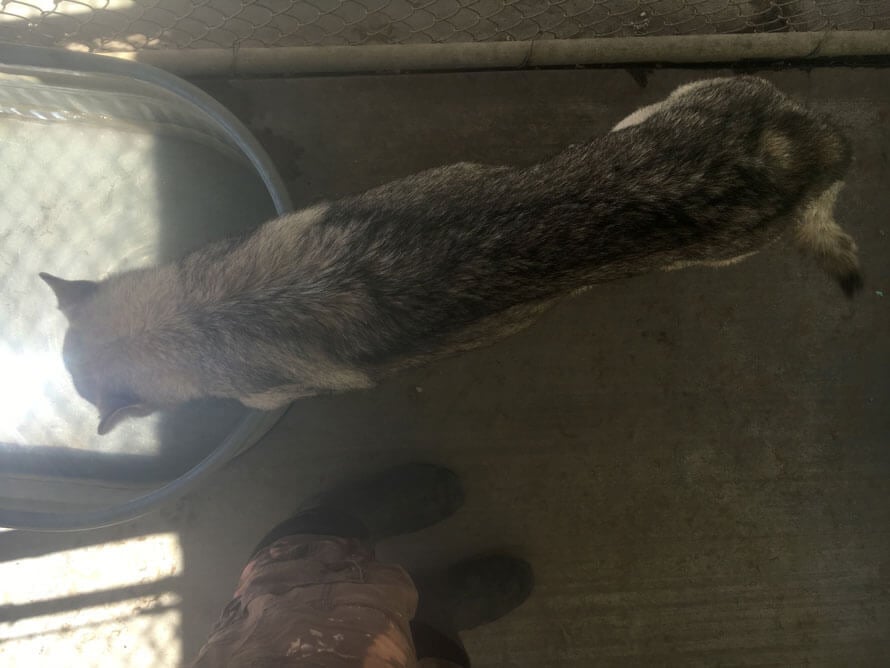Prominent Hollywood Trainer Fails Animals: A PETA Exposé
As first reported in The Hollywood Reporter, a PETA eyewitness investigation exposed the conditions inside a leading animal supplier to the film and television industries.
UPDATE: Based on PETA’s evidence, the U.S. Department of Agriculture (USDA) inspected Birds & Animals Unlimited (BAU) and cited it for violating the federal Animal Welfare Act (AWA). The USDA cited BAU for failing to provide two pigs with skin conditions with adequate veterinary care. The agency also cited BAU for failing to provide dogs who were left outdoors with bedding when overnight temperatures dropped below 50 degrees.
BAU, operated by Hollywood animal trainer Gary Gero, provides animals for use in film, television, and advertisements. BAU has rented out animals to hundreds of productions, including The Hangover, Marley and Me, Game of Thrones, and Pirates of the Caribbean. An eyewitness who worked at BAU documented chronic neglect, including sick and injured animals who went without adequate veterinary care, filthy enclosures, and animals who were denied food so that they would be hungry when being trained to do tricks.
BAU has a training facility near Acton, California, and its “retirement” facility is in Lake Wales, Florida.
Animals at BAU Were Routinely Denied Basic Care
Dogs, including one who BAU staff said was used in the movie Hotel for Dogs, were kept outside and denied bedding, even when temperatures dropped into the low 40s. Those who staff claimed were used in The Solutrean and CBS’ Zoo were housed alone in kennels on hard concrete floors.
Snoop, a geriatric, ailing dog believed to have been used in the film Marmaduke, was frequently left outside overnight in temperatures below 50 degrees. After testing positive for heartworm and months of refusing to eat, vomiting, losing weight, and bleeding from his paws (apparently from his nails), he lost control of his bowel movements and was finally euthanized.
An owl named Crash, who BAU staff claimed was used in the Harry Potter movies, was kept in a feces-strewn enclosure that went uncleaned for at least six weeks. He and other birds of prey lived in inadequate, small enclosures and were deprived of both sensory stimulation and socialization.
Penguins who BAU employees said were used in Batman Returns were denied fresh drinking water. Their only source of water was a chlorinated pool.
Animals were sometimes denied food during training. Gus and Nibbs, two cats who BAU staff said were being used in the upcoming film Benji, were virtually starved for several days because a trainer said they were “fat,” and they lost 5 percent of their body weight in five days.

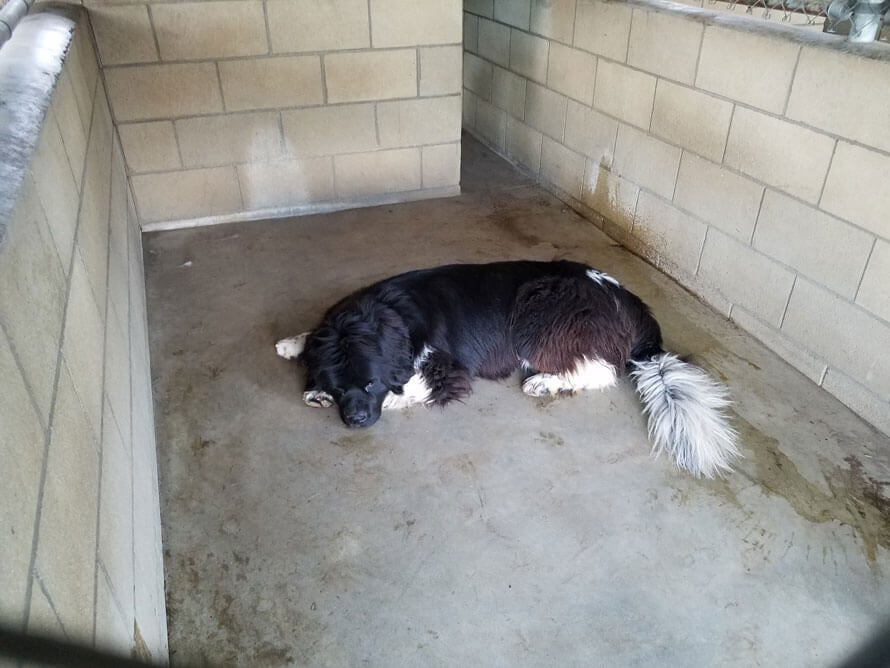
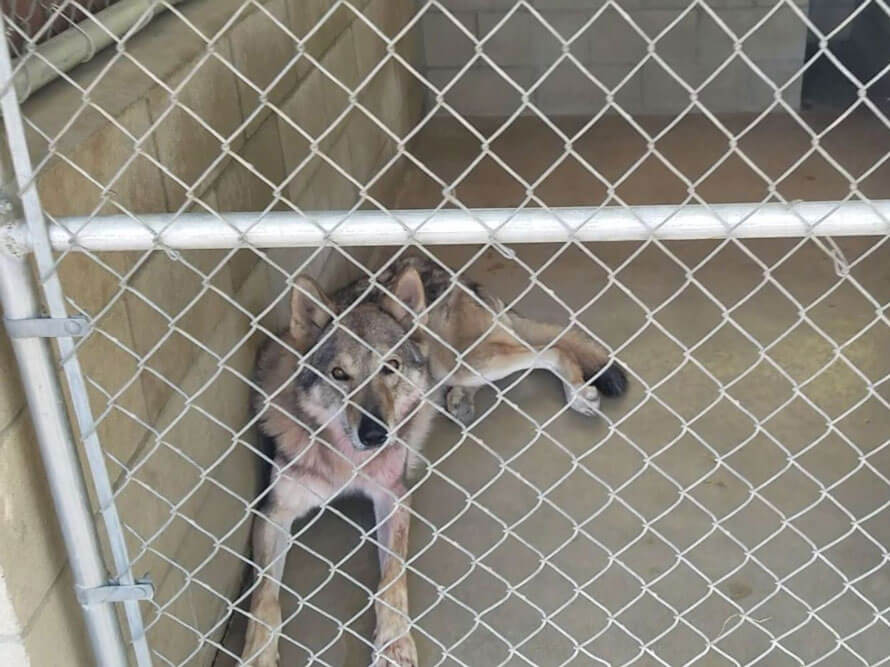
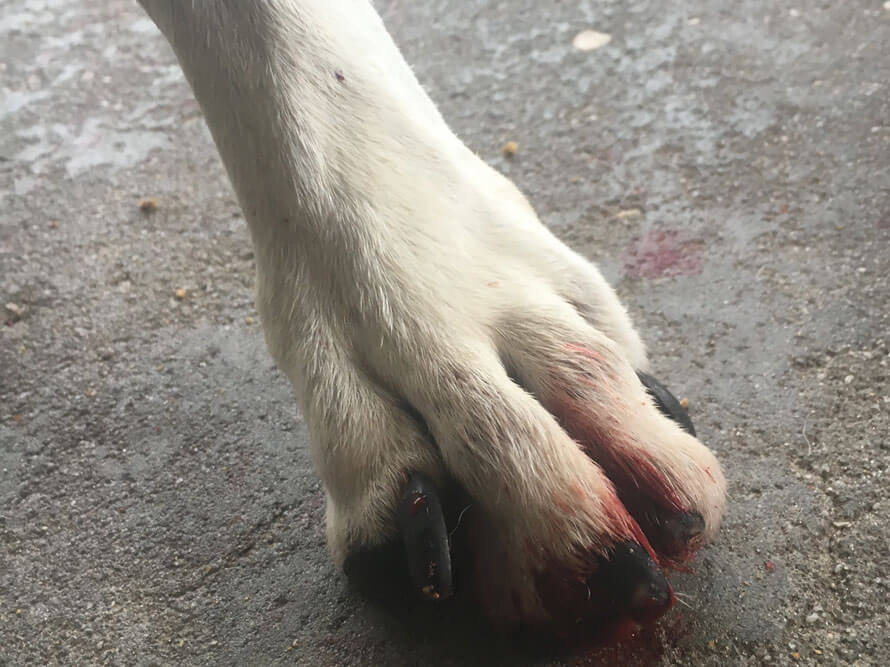

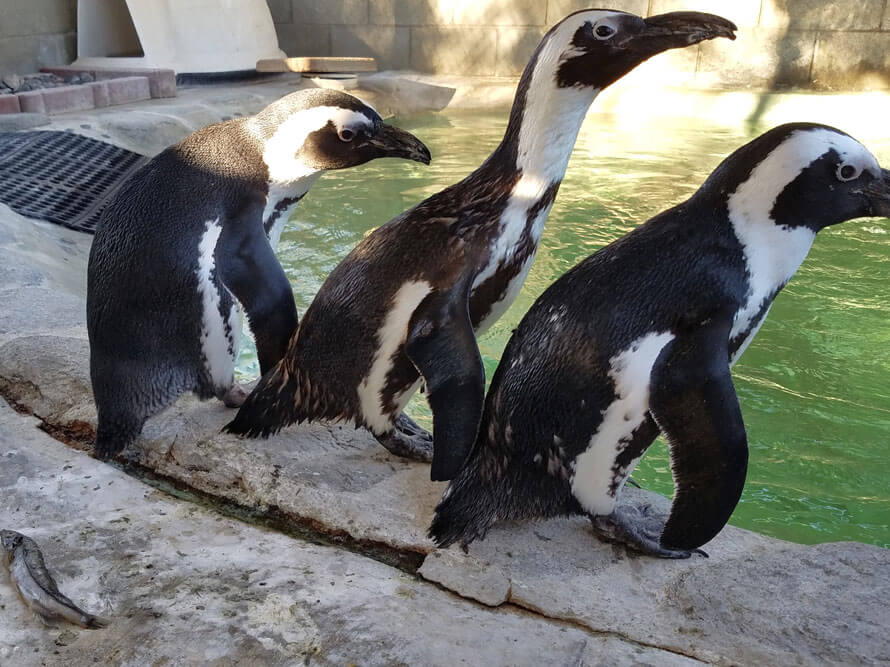
Animals at BAU Suffered Without Adequate Veterinary Care
A 12-year-old pig named Miss Piggy, who BAU employees said was used as a piglet in the movie College Road Trip, frequently suffered from bloody sores all over her sides. The ranch manager told the eyewitness that she was suffering from melanoma. To the eyewitness’ knowledge, no veterinarian was called in to treat her.
Punky, a pig with severely overgrown hooves, went nearly two weeks without corrective trimming after the eyewitness pointed out her condition. The trimmer—a layperson, not a veterinarian—told the ranch manager that Punky had arthritis, but the pig received no pain relief or medication for the condition and, to the eyewitness’ knowledge, was not seen by a veterinarian.
A pig named Lewis had a severe limp for over a week before a veterinarian was called, and it was several weeks before he finally received effective treatment.
A young dove who was unable to walk was denied licensed veterinary care and was found dead nine days after the condition was reported to a manager.
An employee told the eyewitness that fully conscious pigeons’ heads were pulled off as a method of killing them. The employee explained that the heads don’t always come off on the first attempt. One pigeon was found infested with mites, slumped over, and barely moving. A manager said that she would “pull” the pigeon but two hours later had failed to do so, and the pigeon died.
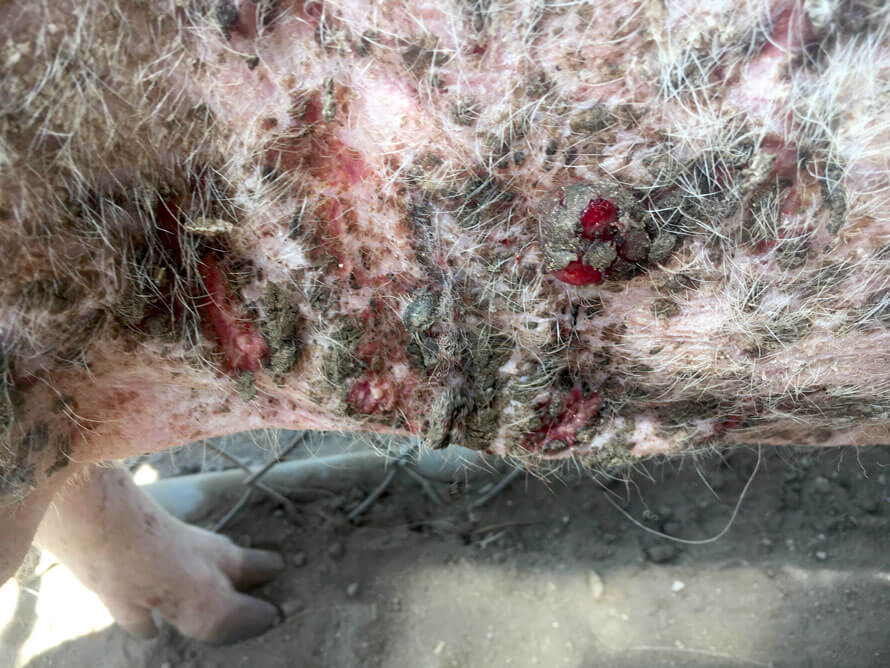
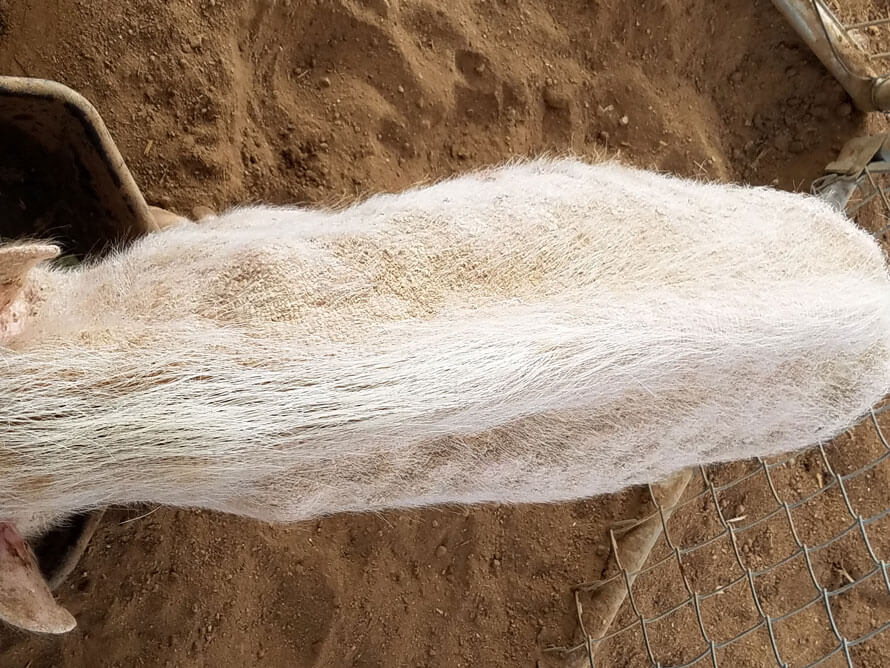
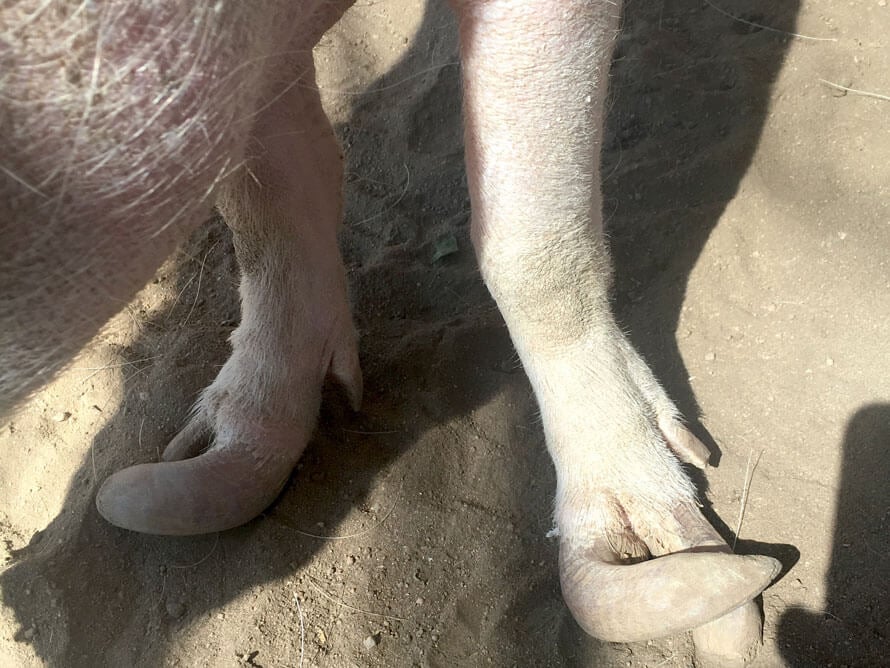
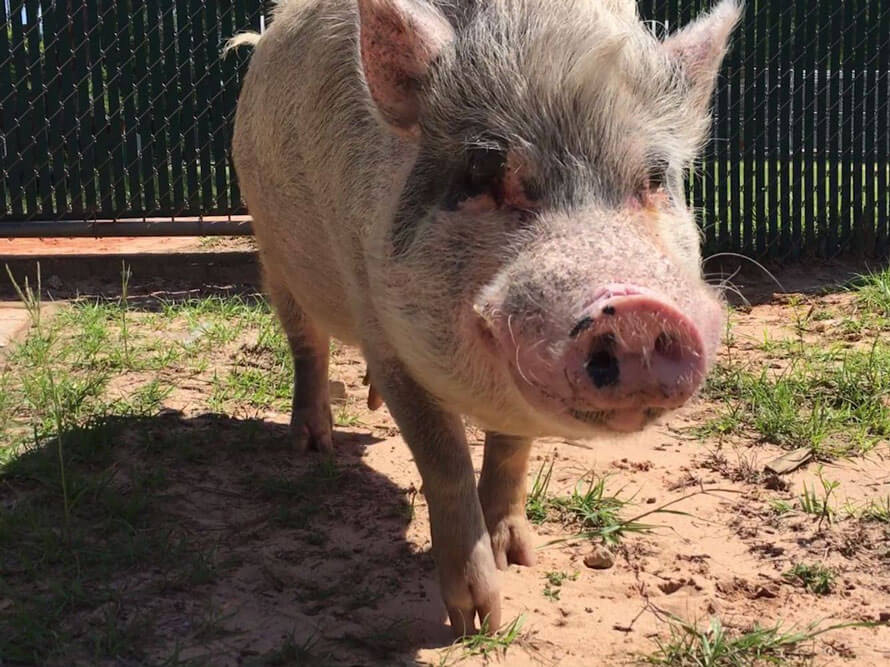
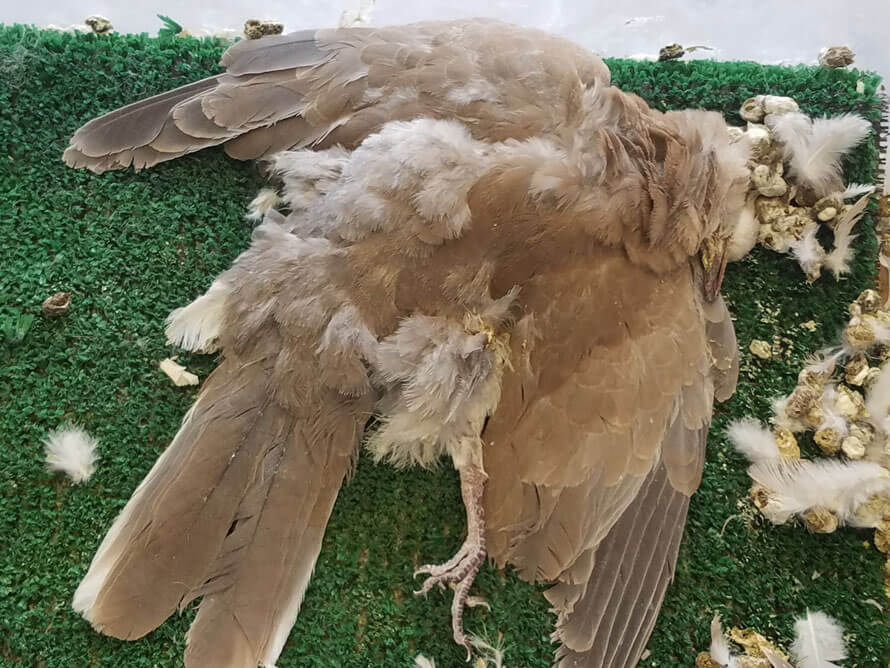
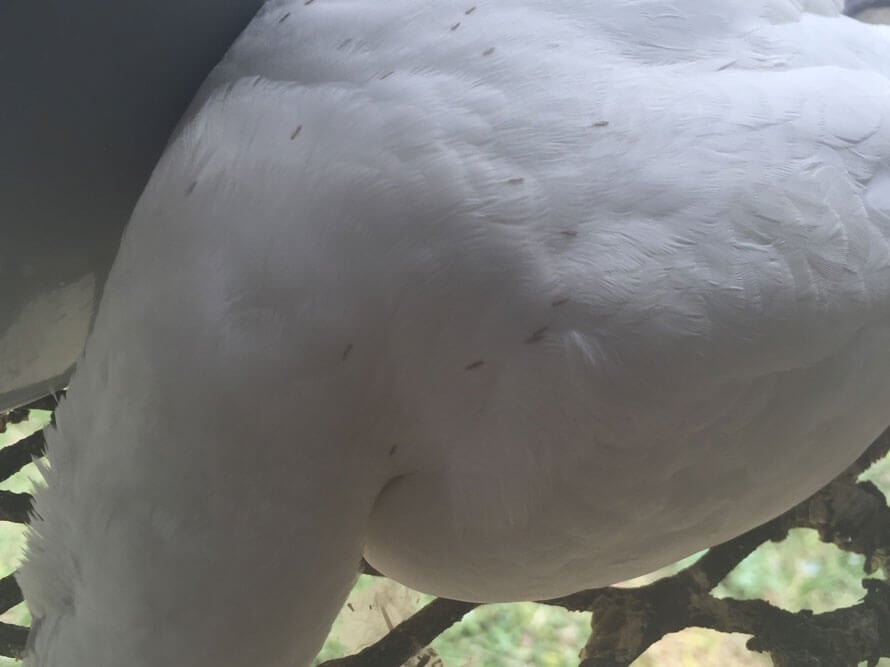
Keeping the Curtain Drawn Shut
Secrecy about training techniques appeared to be a priority: Most sessions took place in a building restricted only to trainers.
After apparently receiving a complaint about underweight dogs, a local law enforcement officer came to inspect BAU. The manager panicked when she heard about the inspection, expressing concern that “too much information [was] being given.” She worried that the officer’s report could be seen by the public, because that’s when “PETA gets involved.”
BAU staff evidently obtained animals from shelters and rescue operations under the guise of adopting them, but they were actually procured for use in productions. The manager admitted that the shelters were usually not aware that the animals would be used for entertainment because, “like PETA,” the facilities oppose such use.
The ranch manager admitted to the eyewitness that a kangaroo named Lenny had died—unable to eat and, as reportedly seen in post-mortem X-rays, suffering from a broken jaw—and that she had falsified a federal document stating that he had “gone to Texas.” PETA has alerted the USDA that the agency was provided with paperwork that apparently was fabricated.
BAU has a lengthy history of failing to provide animals with the bare minimum requirements of the federal Animal Welfare Act (AWA) and has been repeatedly cited by the USDA for failing to comply with veterinary requirements, failing to provide animals with shelter from the elements, and improper food storage. It has also been cited for failing to provide primates with enrichment, for failing to provide animals with minimum space, and for filthy and foul-smelling cages. PETA has submitted a complaint to the USDA alleging several apparent violations of the AWA based on the eyewitness’ evidence, and has also submitted complaints to state and local authorities.
